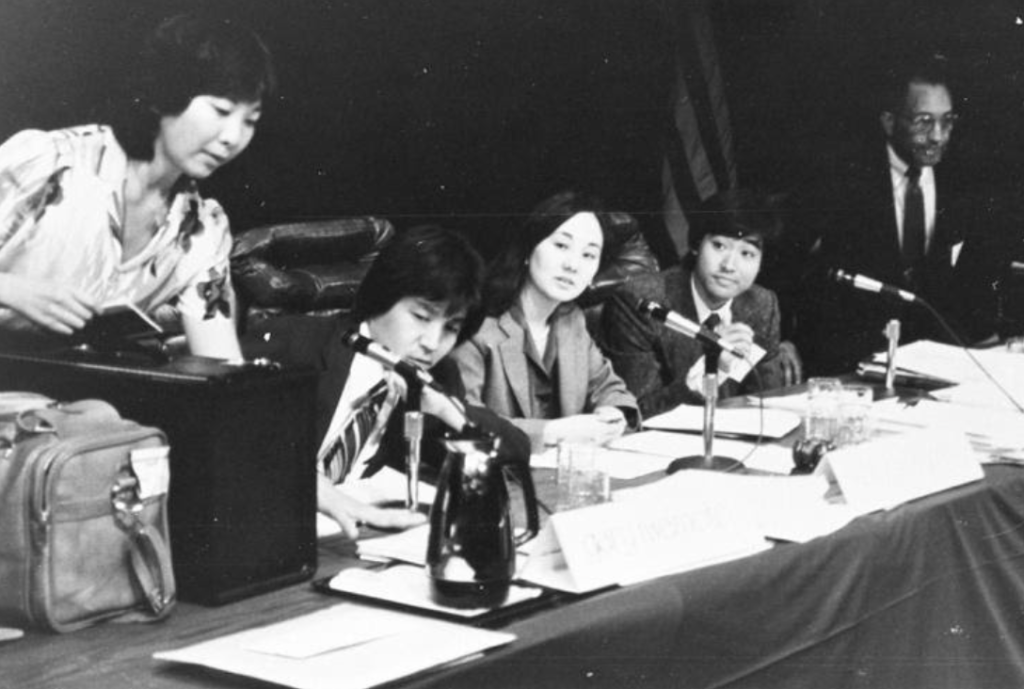Apologies, Eventually

In the wake of the war and the mass incarcerations of Japanese Americans, a series of movements were launched to win compensation for survivors, restore the civil rights of their Issei parents, and gain some form of official apology from the United States government. By the 1970s these efforts, which came to be called the “redress movement,” had begun to gain traction. Commissions were formed and Congressional hearings were held. Japanese American political leaders like Senator Daniel Inouye, Senator Spark Matsunaga, Congressman Norman Mineta, and Congressman Robert Matsui threw their weight behind the effort. Dozens of veterans of the 442nd RCT and the 100th Infantry Battalion, like Rudy Tokiwa, joined in the effort to lobby Congress, tirelessly walking the halls of the Capitol, meeting with members of Congress, pleading their case. But it wasn’t until passage of the Civil Liberties Act of 1988 that the Congress finally authorized redress payments of $20,000 to each incarcerated person. The first checks were issued to the nine oldest survivors, along with a formal apology signed by President George H. Bush, in 1990. By 1999, checks had been issued to 82,250 people.
One of the key moments in the redress movement came when Rudy Tokiwa persuaded Charles Bennet, a conservative member of Congress from Florida, to vote in favor of the Civil Liberties Act. Listen to Rudy’s amusing account of how that came to pass here:
https://encyclopedia.densho.org/sources/en-denshovh-trudy-01-0005-1/
For a comprehensive overview of the redress movement, see this entry in the Densho Encyclopedia:
https://encyclopedia.densho.org/Redress%20movement
A different kind of apology came from the Japanese American Citizens League in 2002. During the war, the JACL had publicly castigated and urged harsh punishment for the Nisei resisters. By the end of the Twentieth Century, following the redress movement, the context had changed, historical awareness had grown, and the resisters had come to be seen in a different light—as members of the community who should be celebrated for their moral courage. You can explore this part of the story in more depth here:
https://encyclopedia.densho.org/JACL%20apology%20to%20draft%20resisters